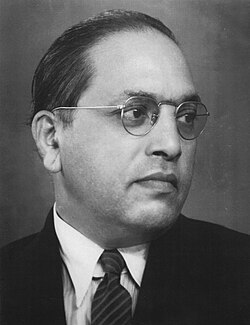Lawyers

- B. R. Ambedkar (1891–1956), jurist, barrister, and first Law and Justice Minister of India
- R. D. Bhandare (born 1916), governor of Bihar and Andhra Pradesh
- Bhushan Gavai (born 1960), the current and 52nd Chief Justice of India [8]
- B. C. Kamble (born 1919), jurist and lawyer
- Prof. Dr.Adv.Sunil Baliram Gaikwad (born 19 June 1970) Advocate Supreme Court of India